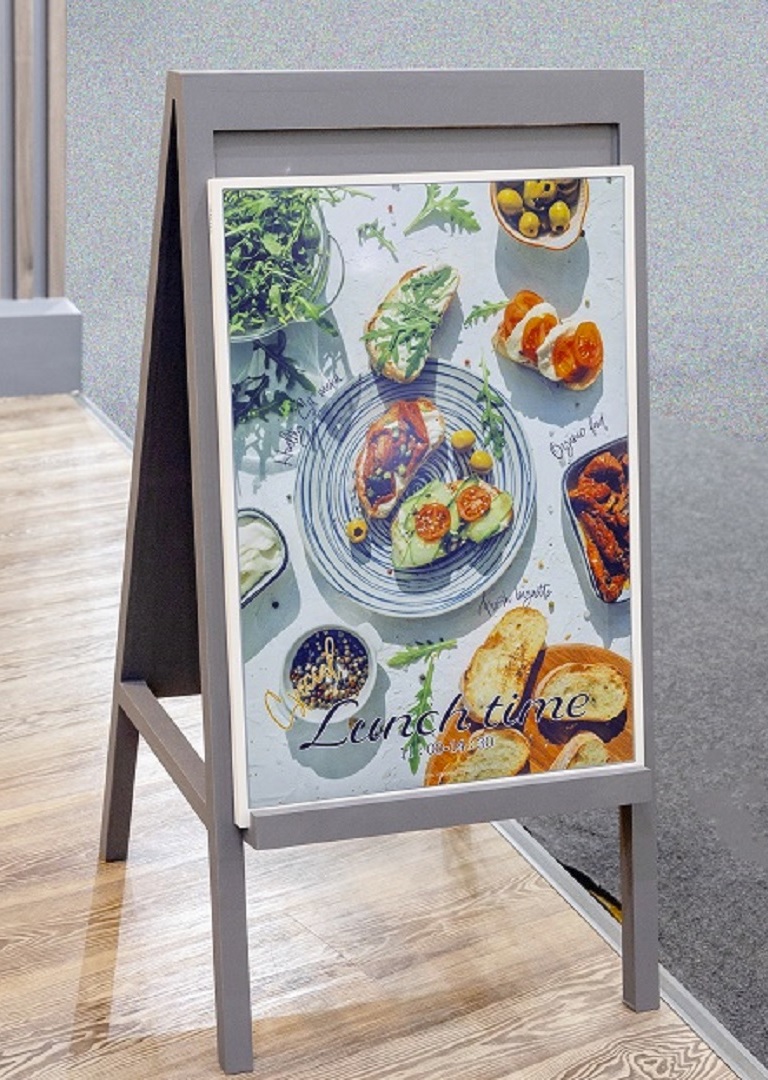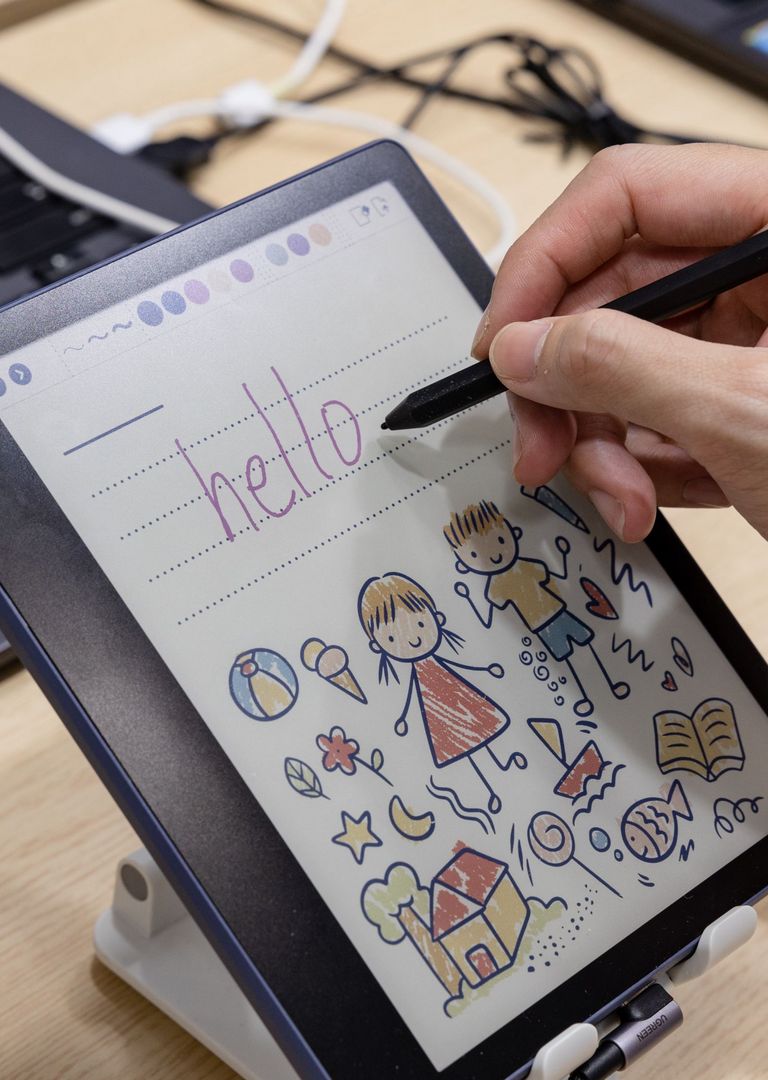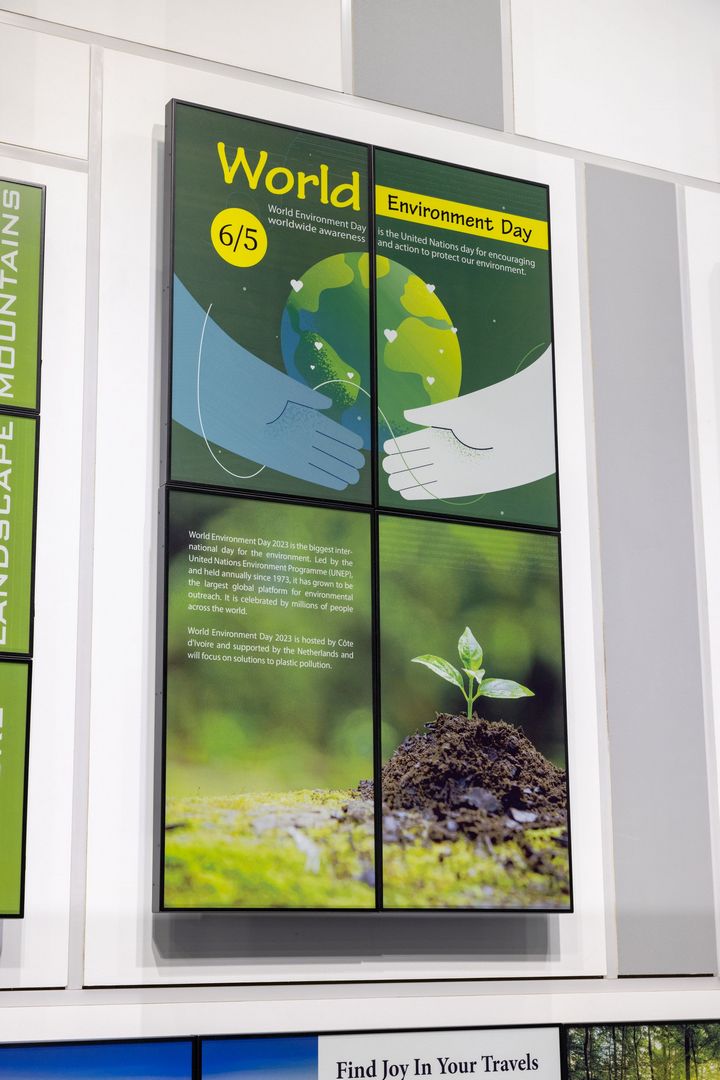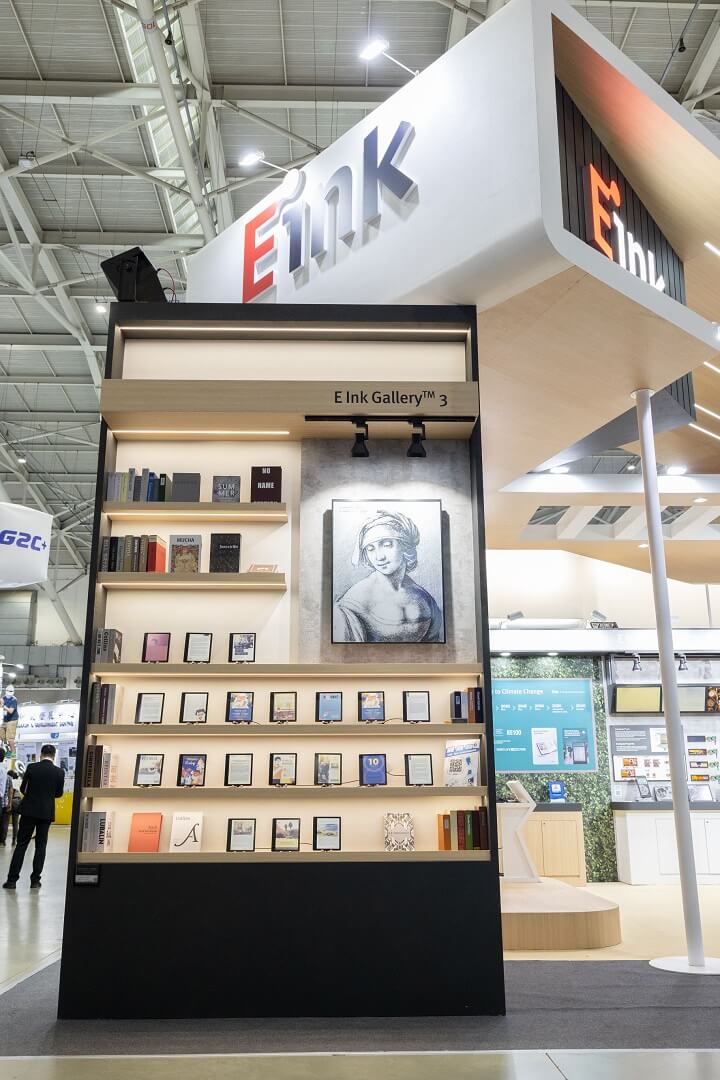TECHNOLOGY DESCRIPTION
Introduction
Learn more about E Ink and how our technology works.
E Ink screens made with E Ink ComfortGaze™ Front Lights are 3 times less stressful for retinal cells than traditional LCD screens.

E Ink displays with NO front lights emit NO blue light.
What is Blue Light? Blue light is a short wavelength, which means it produces higher amounts of energy. Blue light exists in our natural environment from the sun, but it is also produced by the screens we use in our everyday life, including lightbulbs, TVs, computers, cell phones and tablets.

Spectra of light in back and front lights of displays is leading trigger for stress on retinal cells. Retinal cells stressed by blue light produce “reactive oxidative species” (ROS). ROS can accumulate during prolonged times of viewing, leading to photooxidative retinal damage.

E Ink engaged the Harvard School of Public Health to run a scientific study to explore if E Ink displays are more beneficial for long-term reading and writing than LCDs.
The results showed that Using E Ink screens made with E Ink ComfortGaze™ Front Lights are 3 times less stressful for retinal cells than traditional LCD screens.
The study also showed that ComfortGaze reduced the Blue Light Ratio (BLR) and Blue Light Toxicity Factor (BLTF) by up to 60 percent and 24 percent respectively compared to the previous generation of front light designs. ComfortGaze was engineered to have:
- Blue emission peak with less energy at 10nm longer wavelength (460nm)
- More energy in red part of the spectrum, potentially slowing ROS buildup
- Display white in night mode is more neutral (less amber) in hue

And lastly:
- White paper, using fluorescent brighteners, reflects considerably more blue light than ePaper
- In bright ambient illumination with high amounts of blue light, ePaper is better than paper in terms of eye safety
Learn more:
Download the Harvard whitepaper here: http://dx.doi.org/10.1002/jsid.1191
Download our whitepaper on Blue Light here: https://go.eink.com/download-our-whitepaper-healthier-screen-time






